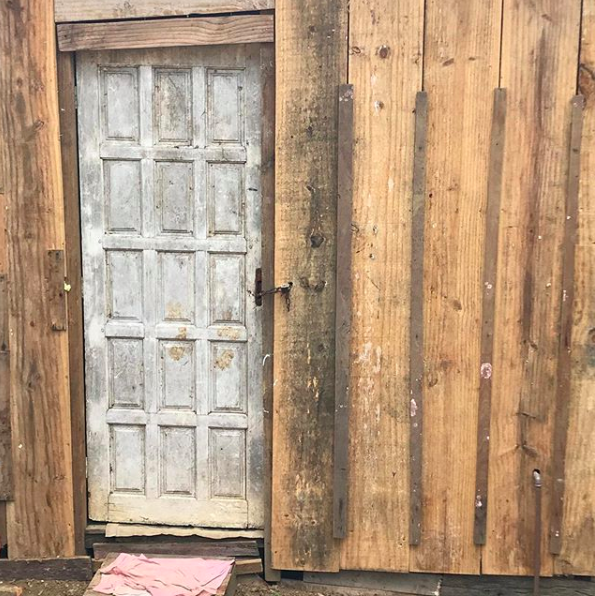19 Oct Day 9: Bootprints in the Boca
“How beautiful are the feet of them that preach the gospel of peace, and bring glad tidings of good things!”
Romans 10:15

Bootprints on the door
The view from my kitchen window at the youth ranch is beautiful. Green, lush hills, sprinkled with tall palm trees that sway in the wind, heavy with coconuts begging to be picked. But just beyond the palm trees, in the distance, I can see little houses: the “boca,” or mouth—the most dangerous part of the slum.
My neighbor, Nora, can also see my house from her window. Her son, a drug addict, hastily nailed some planks together and made this house so she could get away from the man who was beating her. She and her 12-year-old daughter, Sara, neither child nor woman, live in this one-room, one-bed shack, with the light shining through the huge gaps in the wooden slats.
There is a sink, but no plumbing. They walk three blocks to her son’s house to go to the bathroom and take showers. But they can’t take the most direct route, because the streets are “owned” by traffickers who have a longstanding grudge against her family. We had to get permission to enter the favela to visit Nora and bring her some bags of groceries. We were hoping to convince her to allow Sara to enroll in courses at Hope Mountain, in clear view of the box they call home.
Nora’s life is controlled by men and by fear. The move to her new house was in vain, because her spurned lover followed her. She showed me the cuts and bruises on her neck where he tried to strangle her with the same chain she used to try to lock him out. His muddy footprints are still on the door where he broke it down.
Nora’s did enroll Sara in a course, but then withdrew her, because she decided it was too dangerous for her to walk alone. But we’ve formed a relationship, and the journey has begun. As we walk back through the muddy streets, we get shouts of greeting from various house windows—people who have taken courses at Hope.
Many of our day students come from desperate situations. But each morning at the ranch starts with them holding hands in an enormous circle, praying for a new day and the potential it brings. Classes start with a devotional, and on Wednesday they pause for chapel. Students who need help get baskets of food, and last year everybody got a turkey at Christmas. We do what we can for our neighbors.
Each house I see out my kitchen window has a family. A story. Some are poor, but dignified—perhaps invalids without healthcare. Most are a tangled, knotted mess, like the backside of a tapestry. We want to be there for all of them.
Lord, you have woven us into their lives for a purpose. Help us be part of your plan to make something beautiful out of the ugliness. That is our prayer today.

